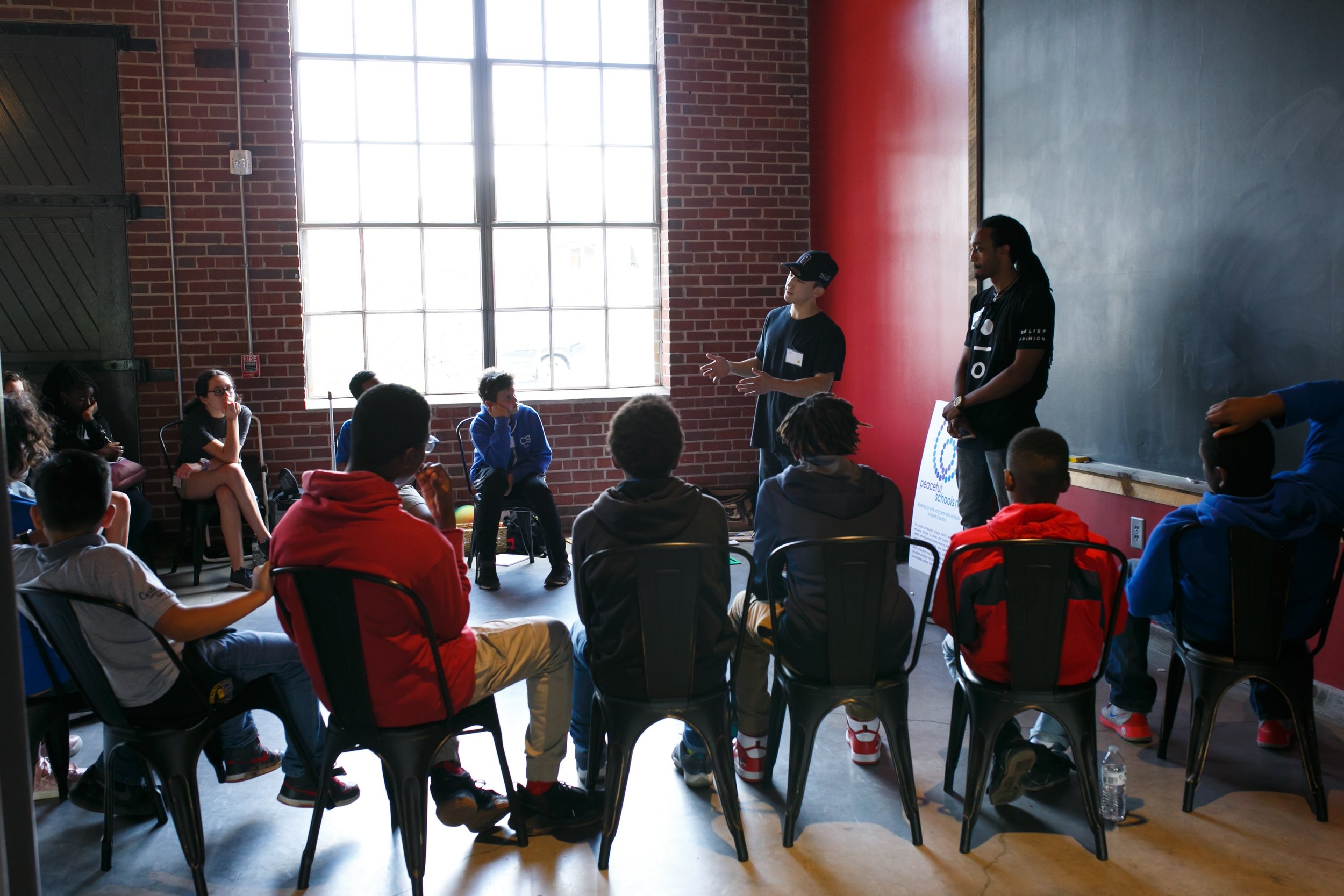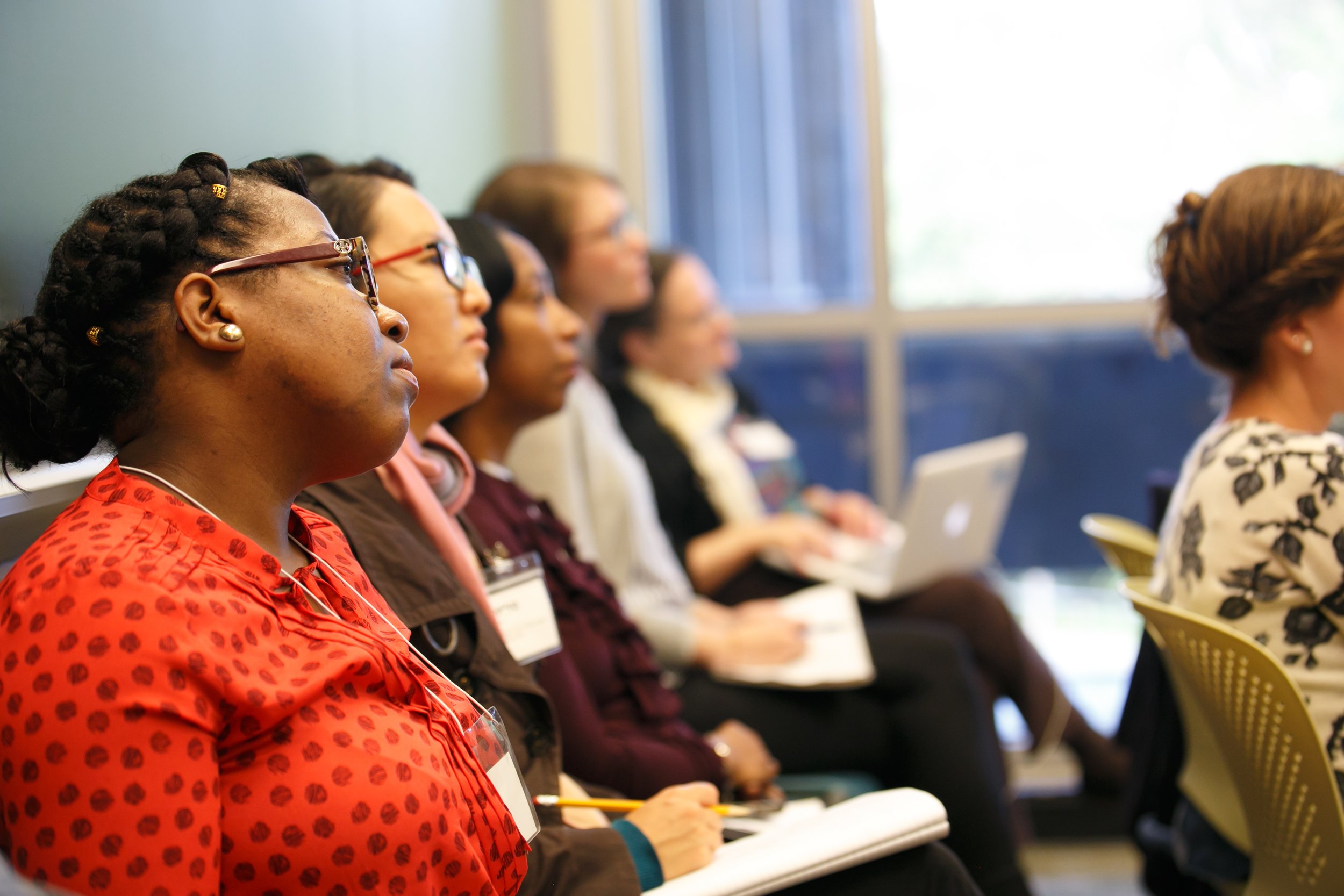
Our History
It all began with a question.
In Jamaica, “What would need to happen to decrease the use of physical force in the classroom?”
In Hungary, “How can we help visually impaired students develop conflict resolution skills and equip them to navigate bullying directed at them?”
In Australia, “How can we create a unified national approach to teach all of our children to resolve conflict effectively, develop self awareness, and become altruistic leaders?”
Dr. Peter Fonagy, Dr. Stuart Twemlow and Dr. Frank Sacco founded CAPSLE (Creating a Peaceful School Learning Environment) in 1999 to answer these questions globally.
In North Carolina, “How can we build safe and caring communities in which the healthy resolution of conflict is practiced?”
At Carolina Friends School, “How can we help students to take responsibility for making peace and resolving conflict regardless of the role they play in a situation?”
The question led to actions.
In 2007, beginning with a small group of educators and child therapists chaired by Dr. David Smith, this work took root in the Middle School at Carolina Friends School under the leadership of Dr. Renée Prillaman. Carolina Friends, grounded in a long history of peace education, turned to the research of Dr. Peter Fonagy, Dr. Stuart Twemlow, and Dr. Frank Sacco, to launch a series of classes and experiences for young adolescents. Convinced that this work could transform school climates, Carolina Friends School, along with the original Peaceful Schools NC Committee, set out to build community partnerships.
Funded by a grant from the Triangle Community Foundation, Carolina Friends partnered with Central Park School for Children to begin a school-wide initiative in 2009-2010 that included teacher training and consultation on the systems of bullying, relationship building, and conflict resolution. That initiative served as a model for how other schools and programs could create peaceful learning environments tailored to their individual missions and school culture.
Motivated by their deep sense of mission and spurred by the results of work at Carolina Friends School and Central Park School for Children, Peaceful Schools NC took their message to community events and interviews with local TV, radio, and newspapers. They expanded their work in the area of teacher education and training. Christel Butchart, Peaceful Schools Director and Carolina Friends Middle School Educator, has led the committee in the expansion of their work to include an ever increasing list of school and community partners.

We are deeply grateful to the many individuals who have paved the way for Peaceful School NC’s earliest growth and evolution:
Dr. Stuart Twemlow, Dr. Peter Fonagy, and Dr. Frank Sacco for providing foundational expertise and thorough training locally and globally
Dr. David Smith, Dr. Harold Kudler, and Dr. Jeffrey Chambers for your initial wisdom and leadership connecting psychoanalysis to the health of a school community
Dr. Renée Prillaman for bringing to life your vision of what Peaceful Schools could be within a school
Sarah Stiegler and Kerry Waite for securing our first grant, bringing us into the public eye and getting us off the ground
John Heffernan for believing in Peaceful Schools NC and overseeing its successful implementation at Central Park School for Children
Carolyn Aston for sharing Student Day and the secrets of their success in our Australian cohort
We are now proudly hosted by Carolina Friends School, an independent Quaker school in Durham, North Carolina. The core tenants of Carolina Friends and Quaker pedagogy include the belief of seeking peace within oneself and with others and accepting and respecting each individual’s uniqueness. As an independent school, Carolina Friends is invested in social justice and public service allowing Peaceful Schools NC to meet the needs of our schools in a way that is affordable and accessible.
Since the beginning, we have believed:
School communities are complex social systems and everyone in that community has a responsibility for ensuring that it is safe and healthy.
The strengths and needs of school communities vary, and so there is no “one size fits all” curriculum.
The best creators of the norms, expectations and processes in a community are the members of that community. Our role is to listen, support and further.
The truth is continually revealed and we must be agile and willing to change and grow when new truths become visible.
Peaceful schools education lays a foundation for a peaceful world.
